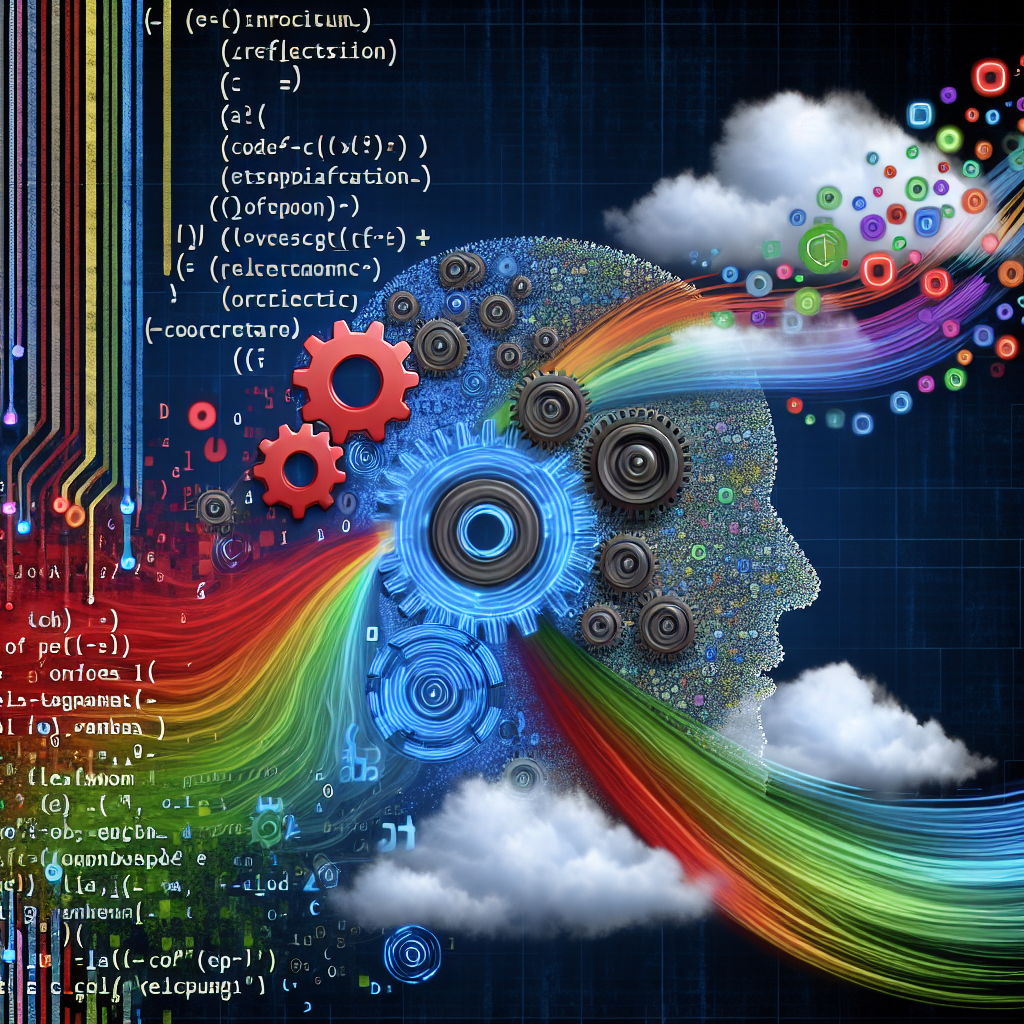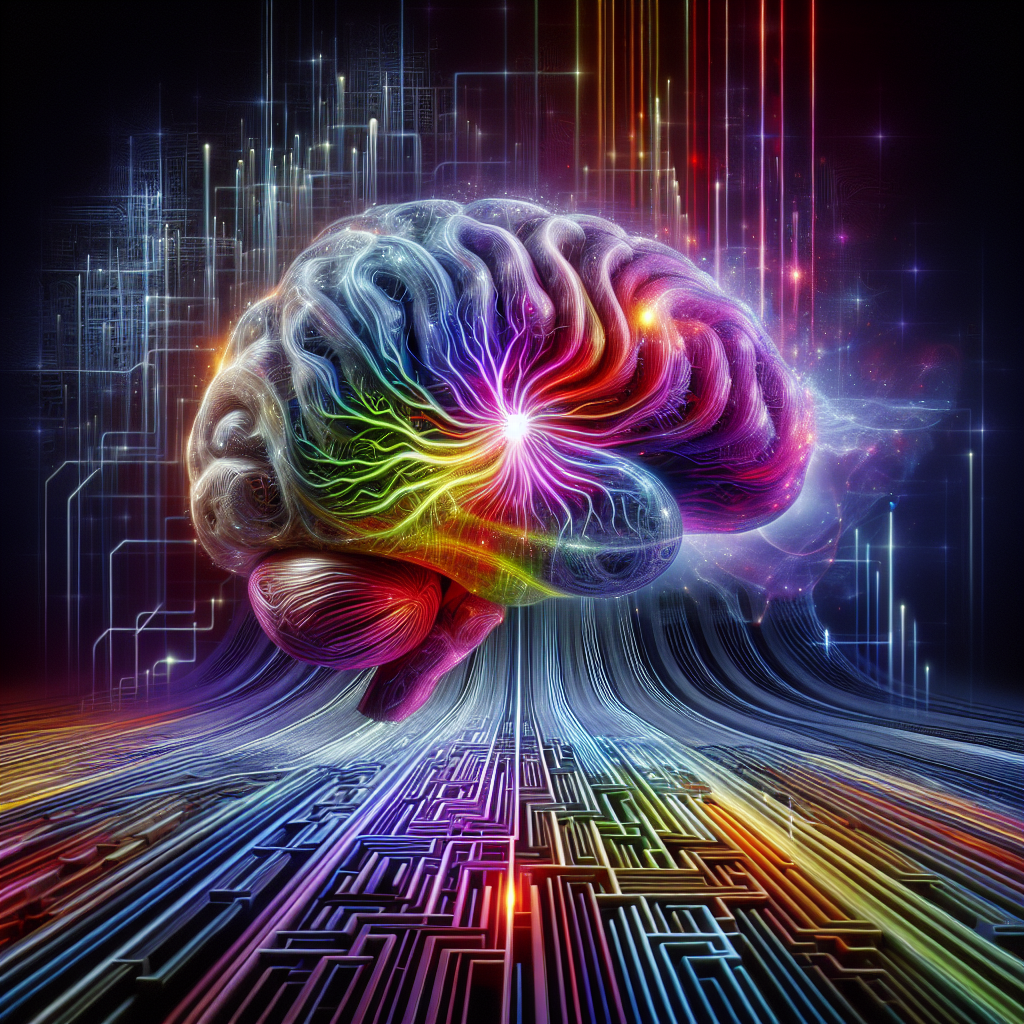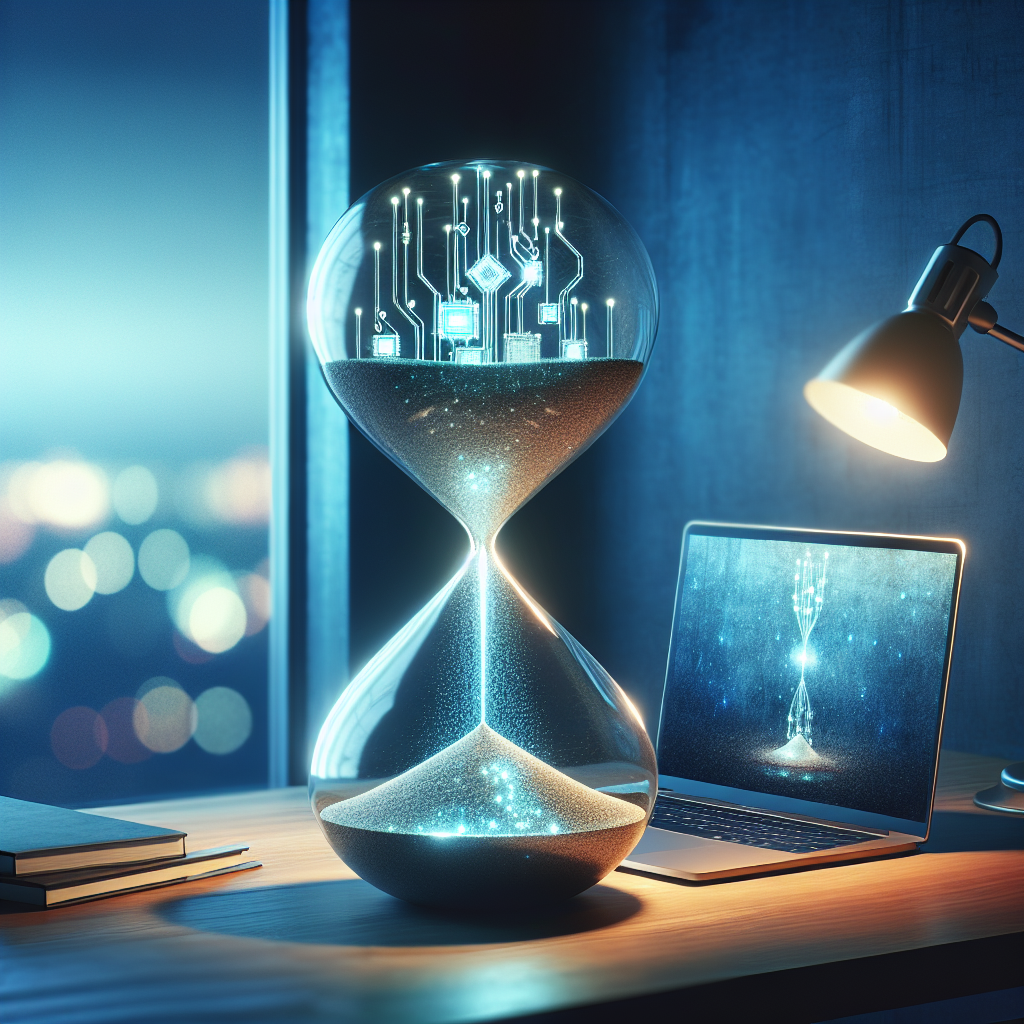Have you ever wondered what it would be like if your computer could write its own code, and not just write it, but perfect it too? Welcome to the fascinating world of self-correcting AI, where the latest advancements in artificial intelligence are revolutionizing the way we approach software development. Buckle up, because we’re about to dive into a realm where machines don’t just code – they reflect, learn, and improve their own work.
Self-Correcting AI: How Reflection Techniques Are Revolutionizing Code Generation
In the ever-evolving landscape of artificial intelligence, a groundbreaking development is sending ripples through the tech community: self-correcting AI that employs reflection techniques to improve code generation. This isn’t just another incremental step in AI evolution; it’s a giant leap that’s reshaping our understanding of what machines can do.
The Dawn of Introspective AI
Imagine an AI that doesn’t just process information but ponders its own thoughts – much like a human programmer mulling over their code. This concept, borrowed from human cognition and known as reflection, is now being applied to AI models with remarkable results. It’s not just about generating code anymore; it’s about creating AI systems that can critically analyze their own outputs, leading to more accurate and reliable results.
Enter GPT-Next: The Code Whisperer
Recent murmurs in the AI grapevine have brought to light a new player in the field, tentatively dubbed GPT-Next (or “Orion” in some circles). While details are still emerging, early reports suggest that this model represents a quantum leap in natural language processing and code generation capabilities. It’s not just about writing code; it’s about understanding the nuances of programming languages and software architecture at a level that rivals human expertise.
HyperWrite’s Reflection-70B: The Open-Source Titan
But wait, there’s more! Enter HyperWrite’s Reflection-70B model, an open-source behemoth that’s turning heads in the AI community. Why all the excitement? Let’s break it down:
- Unparalleled Power: Reflection-70B isn’t just powerful; it’s currently hailed as the most potent open-source AI model on the planet. Imagine having a coding assistant with the processing power of a supercomputer at your fingertips.
- Self-Healing Code: This isn’t your average code generator. Reflection-70B uses advanced reflection techniques to self-correct hallucinations – those pesky errors that often plague AI-generated content. It’s like having a proofreader and debugger rolled into one.
- Code Quality on Steroids: Early tests suggest that this reflection-based approach could dramatically enhance the quality of generated code. We’re talking about code that’s not just functional, but elegant and efficient.
The Magic Behind the Curtain: How Self-Correction Works
So, how does this self-correction sorcery actually work? It’s a bit like having an internal code review process, but at lightning speed:
- The AI generates an initial code snippet or solution.
- It then analyzes its own output, looking for potential errors, inefficiencies, or logical inconsistencies.
- Based on this self-analysis, it refines and improves the code.
- This process repeats until the AI is satisfied with the result.
This iterative self-improvement cycle leads to more accurate and reliable code, especially for complex programming tasks that would traditionally require multiple human review cycles.
Reshaping the Software Development Landscape
The implications of these self-correcting AI models for software development are nothing short of revolutionary:
- Turbocharging Productivity: Imagine cutting your coding time in half – or even more. These AI assistants can generate accurate code snippets and even entire functions, dramatically reducing the time spent on repetitive coding tasks.
- Quality Code, First Time Around: With self-correction capabilities, the initial code output is of higher quality, potentially reducing the need for extensive debugging and refactoring.
- Democratizing Development: As these models become more accessible, they could level the playing field in software development. Novice programmers could leverage these tools to produce professional-grade code, while seasoned developers could focus on more complex, creative aspects of software architecture.
Not All Roses: Challenges on the Horizon
While the potential of self-correcting AI in code generation is immense, it’s not without its challenges:
- Hardware Hurdles: Models like Reflection-70B are resource-hungry beasts. Some require up to 48GB of VRAM, putting them out of reach for many individual developers or smaller companies.
- Integration Headaches: Incorporating these advanced models into existing development workflows and popular tools like Aider isn’t always straightforward. It’s a bit like trying to fit a supercomputer into your smartphone – the power is there, but making it work seamlessly is a challenge.
- Ethical Quandaries: As AI becomes more proficient at code generation, we’re entering murky waters when it comes to questions of authorship and intellectual property. Who owns the code – the AI, the developer who prompted it, or the company that created the AI?
Peering into the Crystal Ball: The Future of AI-Assisted Programming
As we look ahead, several exciting trends are emerging:
- Precision Programming: With models like GPT-Next and Reflection-70B leading the charge, we can expect even more accurate and reliable code generation. The days of AI-generated code being a starting point rather than a finished product may soon be behind us.
- Beyond Just Coding: These technologies are poised to expand their reach beyond mere code generation. Imagine AI systems that can not only write code but also optimize existing codebases, identify and fix security vulnerabilities, and even architect entire systems.
- The Evolving Developer: As AI takes on more of the nitty-gritty coding tasks, the role of human developers is likely to shift. We may see a future where developers focus more on high-level design, creative problem-solving, and the ethical implications of the software they create, leaving the heavy lifting of implementation to their AI assistants.
Wrapping Up: A New Era of Coding
The emergence of self-correcting AI models with reflection capabilities isn’t just another tick on the technology timeline – it’s a paradigm shift in how we approach software development. These technologies promise to make coding more efficient, accessible, and potentially more innovative than ever before.
However, as we stand on the brink of this new era, it’s crucial to navigate the path forward thoughtfully. We must balance the immense potential of these tools with careful consideration of their ethical implications and societal impact.
One thing is certain: the code of the future will be a collaborative effort between human creativity and artificial intelligence. And who knows? The next groundbreaking app or world-changing software might just be a conversation away, with your AI coding partner ready to turn your ideas into reality at the speed of thought.


